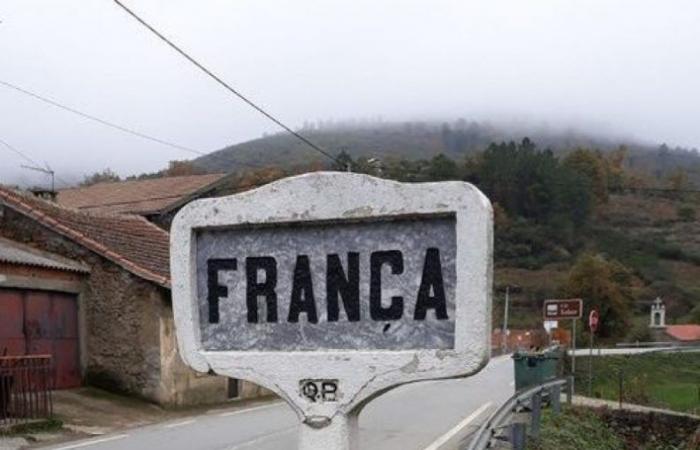Inês Pinheiro Ramos, 89 years old, is one of the last inhabitants of França, a village in the municipality of Bragança, which holds memories of the time of the Estado Novo when there were those who tried to reach the country of France in hiding and ended up there, deceived by the “passengers”.
The “smugglers”, so called, in exchange for money, guided those seeking to leave Portugal under the dictatorship, bypassing the guarded borders. One of Inês’ 11 brothers, Rui, three years younger and now deceased, was one of the village’s passers-by, “France without Paris”, as Inês described it, which is six kilometers from Spain and 16 from Bragança.
“It was said that near the border there were people ‘passing through’ and people came looking. The ‘passers-by’, when they knew that someone was looking for them, approached. And some people deceived us”, recalled Inês, referring to the 60s of the 20th century.
Inês recalled that poverty and the fear of being forced to embark for the colonial war forced us on an uncertain journey. Not infrequently, it was the parents who financed the crossing. It was 10 contos per head, equivalent today to 50 euros, a large amount at the time.
For many, this was the first trip they were going to take in their lives. In the village of França, this made life easier for the “smugglers”, who took advantage of the most innocent.
There was a reference that circulated by word of mouth, a bridge that they would find when arriving in the country of France. Now, the Sabor River passes through the village of França and there is a bridge. And there is still a stone plaque there today that reads “France”.
“And the ‘passers’ took advantage of this situation. People believed they were already in France (country). Everything seemed to go right. (…) They ran out of money in Portugal”, shared the narrator.
Inês explained that the “real” bridge was between Irún, Spain, and Hendaye, France, where the “jump”, clandestine journey ended.
We arrived at the village early in the morning and were left at the sign. Then they left. The “passers” left as a last indication that they “follow when they can” the bridge that, after all, only took them to the other side of the village.
When the sun rose and people returned to the streets, they asked passersby where they were. And they realized the scam. It was like that, Inês said, for at least two years. Some of those scammed returned home, others tried again later and ended up succeeding.
But some did not even reach “France without Paris”. Inês recalled the case of four boys who came from Fátima, district of Santarém: “My brother was in Spain, with others. I went to Bragança, by taxi, to tell them that my brother was arriving the next day. That next day, they were arrested.”
The four young people were staying in a guesthouse in Bragança. They were denounced about their intention to leave the country, Inês showed conviction, expressing, even after more than 50 years, indignation: “They were in Portugal, there was nothing to arrest them”.
The detainees were forced to hand over the “passerby”, Rui, Inês’ brother. He was arrested by the International and State Defense Police, PIDE. Rui was taken to Porto, where he stayed “two or three months”. Another “passerby” from the village of França suffered a similar fate.
PIDE wanted to know how much had already “passed”, who and where. Inês thinks that some “passers” were tortured. Others don’t. They ended up, the two from the village of França, released because “they didn’t take anything from them”. The same happened to the boys from Fátima. They were released, but did not escape having to face court in Bragança, Inês learned.
Inês also went clandestinely to France, the country, in 1968. She did not need “passengers”, as she knew the area as well as they did. She followed with her husband, her children, a 16-year-old boy, a 14-year-old girl, and a niece. For meat, they took smoked meat that they had made at home. In her studies, Inês took third grade, because “they said in the village that girls didn’t need fourth grade”.
They went, avoiding the guard, to Calabor, Spain, about eight kilometers away, where there was a single taxi driver who transported them to the train, and that was felt in the price.
It was on that train that they met another Portuguese person. “He came from Madeira, under a plane, on wheels, and landed in Lisbon. He said he got on a train in Lisbon. He didn’t pay because as soon as he saw the inspector he ran into the bathroom. Without money, without anything, he managed to reach France”.
Inês and her family went to work at a plastics factory in Amiens, near the English Channel, where she spent
13 years.
For so many others, it was more difficult. But Inês, when asked if it was worth it, she replied without hesitation: “It was always worth it. It was worth it, it was worth it.”
*** Tânia Rei, Lusa agency ***






